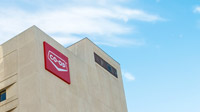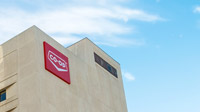 Web Content Viewer
Web Content Viewer
 Web Content Viewer
Web Content Viewer
About FCL
Federated Co-operatives Limited (FCL) does business differently. At its core, FCL is a co-operative that supports other co-operatives that serve people in Western Canada.
FCL is a wholesaling, manufacturing, marketing and administrative co-operative owned by more than 160 independent local co-operative associations. These local co-ops own and operate agro centres, food stores, gas bars/convenience stores and home centres.
 Web Content Viewer
Web Content Viewer
About the CRS
Working together, FCL and local retail co-operatives form the Co-operative Retailing System (CRS), which helps build, feed and fuel individuals and communities from Vancouver Island to northwestern Ontario and into the Arctic.
Over the years, FCL has been involved in a wide variety of business ventures. There has been great growth, as well as challenges. Through it all, FCL has remained focused on providing long-term sustainable value for its members.
For more information, visit www.co-op.crs.
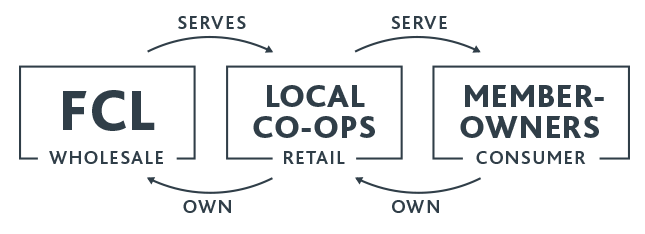
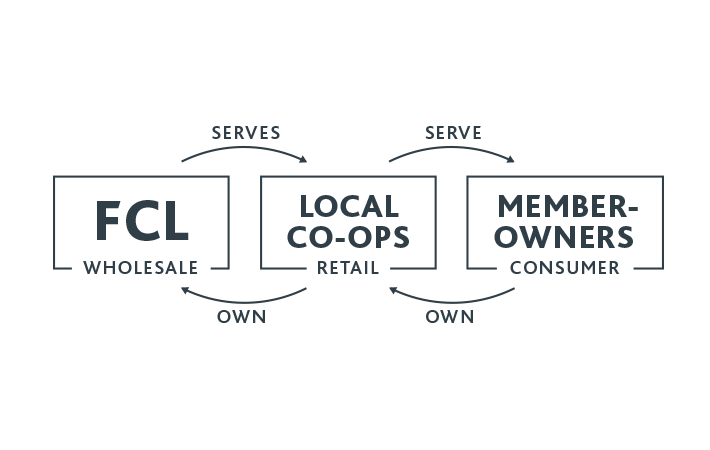
 Web Content Viewer
Web Content Viewer
Vision & Values
Vision
Building sustainable communities together.
Mission
Embracing our co-operative model, we provide responsible, innovative leadership and support to the Co-operative Retailing System for the benefit of members, employees and Canadian communities.
Integrity
Be honest & trustworthy
- Communicate openly and with respect
- Act ethically at all times
- Respect your colleagues, our members and our business partners
Excellence
Strive to be the best
- Focus on continuous improvement
- Innovate and evaluate
- Celebrate our success
Responsibility
Accountability matters
- Focus on success every day
- Support our communities
- Respect the environment
 Web Content Viewer
Web Content Viewer
HISTORY
Consumer co-operatives began in Western Canada in the early 20th century, but did not begin finding stability and success until they worked together and established their own wholesales. Provincial wholesale co-operatives in the four western provinces would expand buying power and eventually amalgamate into what is now Federated Co-operatives Limited.
 Web Content Viewer
Web Content Viewer
-
1928New beginningsThe first prairie co-operatives recognize the need for individual associations to work together as part of one system. Beginning in Manitoba and Saskatchewan, provincial co-operative wholesales are established across Western Canada, providing their members with easier access to goods such as petroleum.
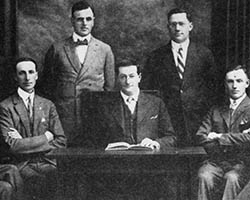
-
1935Work begins at CCRLIn the midst of the Great Depression, eight enterprising farmers believe they can produce and distribute their own fuel instead of relying on major oil companies. They create the Consumers’ Co-operative Refinery Limited, known today as the Co-op Refinery Complex (CRC). The refinery begins processing 500 barrels of crude oil per day, providing the economic engine that helps fuel the co-operative movement in Western Canada for decades to come.
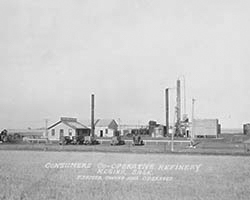
-
1939Expansion into livestock feedWith Co-op Maid Feeds, the Alberta Co-operative Wholesale Association begins distributing livestock feed to its members. Wholesale co-operatives in Saskatchewan and Manitoba begin feed production shortly thereafter.
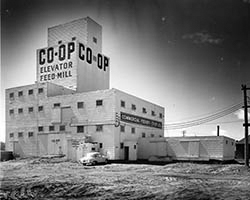
-
1940Co-operation between provincesInterprovincial Cooperatives Limited (IPCO) is formed by the provincial co-operative wholesales on Sept. 17. The organization develops Co-op products in food, home and building supplies and agriculture sectors. Today, IPCO focuses on agricultural products from its production facility in Winnipeg, where it has operated since 1953.
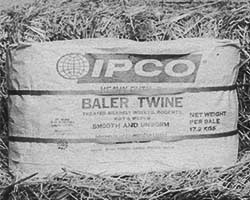
-
1941Groceries for co-opsThe Saskatchewan Co-operative Wholesale Society begins grocery service in Regina — part of a growing interest from provincial co-operatives in new products and services.
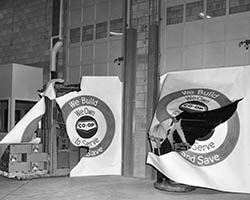
-
1944FCL’s beginningsFederated Co-operatives Limited is formed following a series of amalgamations. The Saskatchewan Co-operative Wholesale Society and the refinery amalgamate in 1944. This new organization amalgamates with provincial wholesales in Manitoba (1955), Alberta (1961) and B.C. (1970) to create one organization serving retail co-operatives in Western Canada.
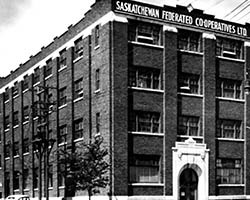
-
1945Further growthGrowing provincial wholesale co-operatives continue to diversify. Hardware and grocery departments open in Manitoba, while British Columbia adds farm supplies. In Saskatchewan, the provincial wholesale purchases a lumber mill in British Columbia, which it operates until 2012.
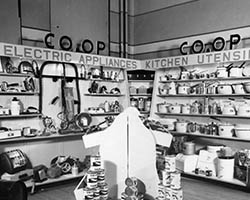
-
1946Home cookingThe Co-operative Women’s Guild in Outlook, Sask., develops the first Co-op Cookbook to support Co-op flour, a new product from the Saskatchewan wholesale’s mill. Women’s guilds test, demonstrate and promote the flour, playing a vital role in the success of Co-op brand products.
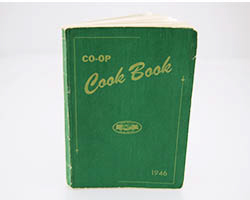
-
1948Breaking groundThe prairie wholesales establish the Consumers’ Exploration Company Limited, which strikes oil near Princess, Alberta.
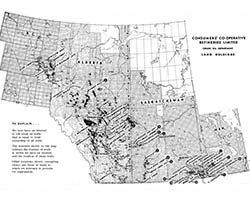
-
1957Symbol of co-operationThe Co-op logo is developed: red Co-op letters framed by a green shield. The all-red logo we know today isn’t introduced until 1974.
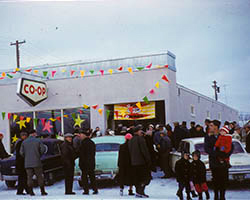
-
1960Petroleum partnersTempo is established as a new brand for independent retailers associated with Co-op petroleum. (Tempo photo circa 1987).
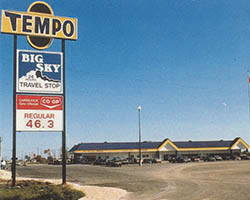
-
1961Selection expandsFollowing CO-OP flour, other “100% CO-OP products” are introduced in the 1950s, including vegetable oil, margarine, peanut butter, coffee and tea. Three product labels — red for top quality, blue for choice quality and green for standard quality — are later replaced by CO-OP and HARMONIE brands.
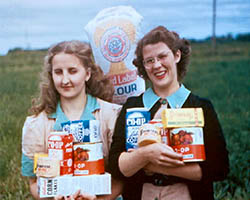
-
1965Introducing the CRSThe Co-operative Retailing System — or “one system” concept — is introduced with the philosophy of unity, loyalty and organizational patriotism. This collaborative network enables FCL and retail co-operatives to take advantage of the services and purchasing power of a larger organization, while remaining locally owned and invested.
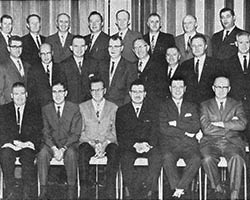
-
1969A new Home OfficeConstruction of the new – and current – FCL Home Office in downtown Saskatoon, Saskatchewan, starts in February with a ground breaking ceremony. Office construction will be complete by the end of 1970.
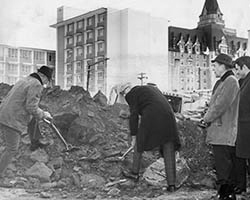
-
1977Improving efficiencyFCL begins a new energy conservation program, saving 22.6 per cent at the refinery and 41.5 per cent on buildings by 1987.
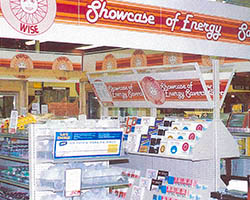
-
1988Petroleum pioneerThe first heavy oil upgrader in Canada comes on stream. Jointly owned by the CCRL and Government of Saskatchewan, the Co-op Upgrader transforms heavy crude oil found in Western Canada into light synthetic oil.
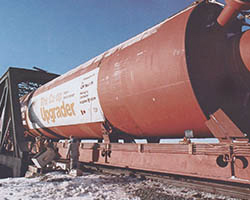
-
1989New energy operationsFCL builds its first corporate bulk petroleum plant, increasing the organization’s fuel storage capacity. The plants soon become fixtures across the CRS, ensuring a steady supply for bulk fuel customers, including farmers, during periods of peak demand.
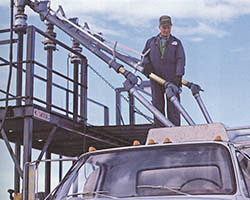
-
1990Bring your own bagsCo-ops introduce reusable cloth checkstand bags, an alternative to the plastic bags introduced in 1990, to manage waste produced by food industry. Reusable bags are reintroduced in 2007.
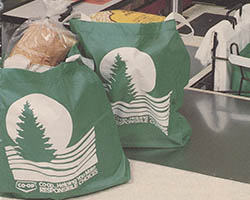
-
1992New growth in groceriesA new era begins at Co-op Food Stores as FCL acquires The Grocery People Limited, a grocery wholesaler founded in Alberta that provides Co-op Food Stores and independent retailers throughout Western Canada with high-quality grocery products.
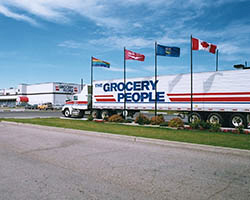
-
1995Go for the GOLDCO-OP® GOLD cola is the first in a new line of Co-op-branded products in Co-op Food Stores. Today there are hundreds of CO-OP GOLD, PURE, MARKET TOWN and ¢ENTSIBLES products — everything from canned and frozen goods to drinks and snacks to household items and cleaners.
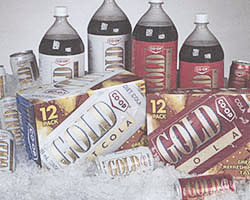
-
1998Seeds for successAs new crop types and technologies become available to growers, FCL enters the agricultural seed business. From two canola varieties, seed options soon expand to include forages and other crop types.
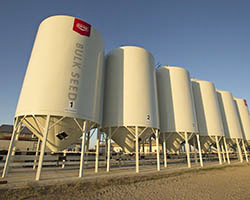
-
1999Focus on convenienceIn 1999, FCL introduces a system-wide cardlock program allowing Co-op members to purchase fuel with their cardlock card at facilities across Western Canada. That same year, FCL begins testing pay-at-the-pump technology, which will allow self-serve gas bar customers to pay by credit card.
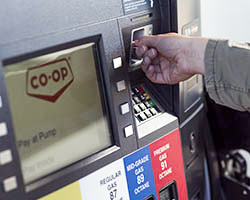
-
2007Fuel for the futureFCL purchases the Government of Saskatchewan’s share of the upgrader, making the refinery complex entirely co-operative-owned. The following year, FCL announces a major expansion to the Co-op Refinery Complex. The Section V expansion and revamp project, worth $2.7 billion, is officially opened 2013.
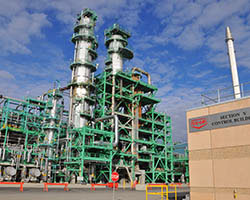
-
2010Riders raise profileFCL and the CRS partner with the Saskatchewan Roughriders to produce Game Day Approved products, with a portion of proceeds benefiting charity. Fantuz Flakes become one of the top-selling private-label cereals at Co-op Food Stores. In 2014, the Game Day Approved partnership expands to include the Calgary Stampeders, Edmonton Eskimos and Winnipeg Blue Bombers.
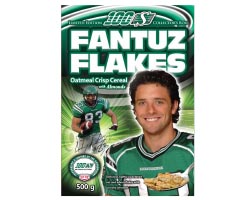
-
2014Era of growthAmidst a changing retail landscape, FCL makes major acquisitions in agriculture and food, transferring these properties to interested retail co-operatives and enabling expansion into new markets. To accommodate its growing operations, FCL purchases a second office tower near its Home Office in Saskatoon.
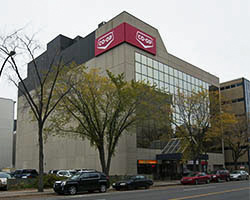
-
2017Investing in agriculture portfolioFCL opens two state-of-the-art, high-throughput fertilizer terminals in Brandon, Man., and Hanley, Sask. With centralized fertilizer distribution, the Co-operative Retailing System can provide producers with everything they need – including fuel, animal feed, crop inputs, grain handling equipment and more – in a single stop. A third fertilizer terminal, located near Grassy Lake, AB, was added to FCL's network in October 2020.
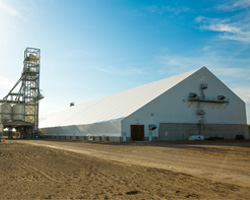
-
2018FCL celebrates 90th anniversaryA commitment to co-operative values helped FCL first get its start as the Saskatchewan Wholesale Society in 1928. Over the next 90 years, the organization built on that legacy to serve and support the needs of both member-owner retail co-operatives and consumers across Western Canada.
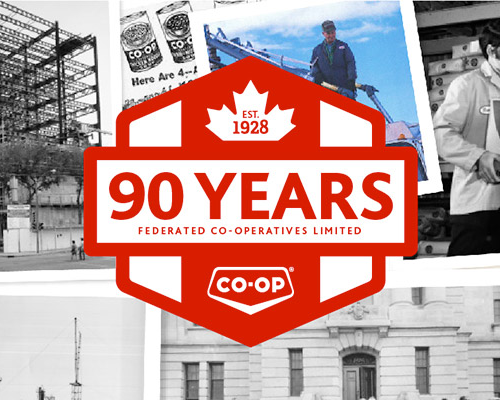
-
2019FCL acquires Terra Grain Fuels ethanol plantFCL purchases Terra Grain Fuel's 150-million-litre-per-year ethanol plant near Belle Plaine, Saskatchewan. This acquisition helps local co-ops meet existing renewable fuels standards and prepare for the incoming national Clean Fuel Standard. The facility will be renamed the Co-op Ethanol Complex in 2021.
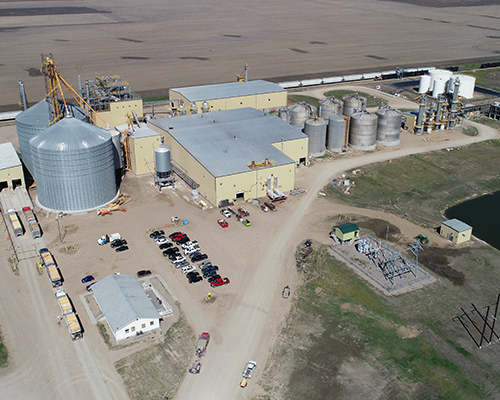
-
2019Alford first woman elected to lead FCL BoardSharon Alford of Swan River, Man., is elected President and Chair of the Board of Federated Co-operatives Limited. She is the first woman to serve in this position in FCL's 91-year history.
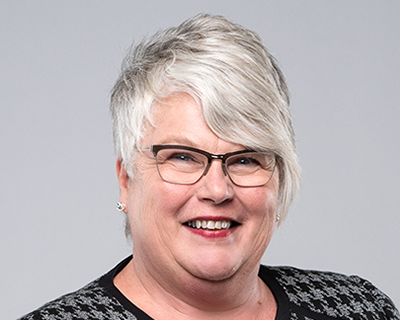
-
2021Co-op partners with Indigenous communities on Western Nations Gas BarsFCL, in consultation with Indigenous leaders and communities across Western Canada, launches the Western Nations gas bar brand. The first Western Nations site, a partnership between Sturgeon Lake First Nation and Lake Country Co-op, opens in August.
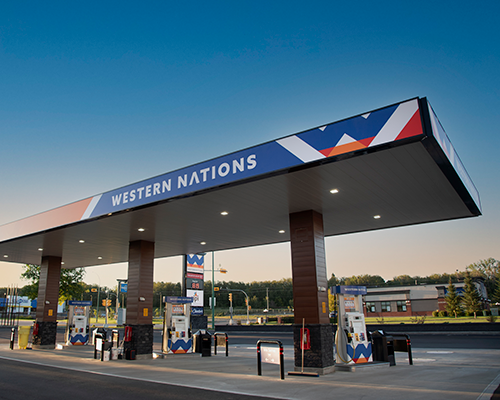
-
2021Co-op announces retail fuel sites acquisitionFCL, on behalf of the Co-operative Retailing System, enters into an agreement to purchase 171 Husky retail fuel sites across Western Canada. Representing the largest acquisition in FCL’s history, the deal closes in August 2022 with the majority of sites transferred to local Co-ops.
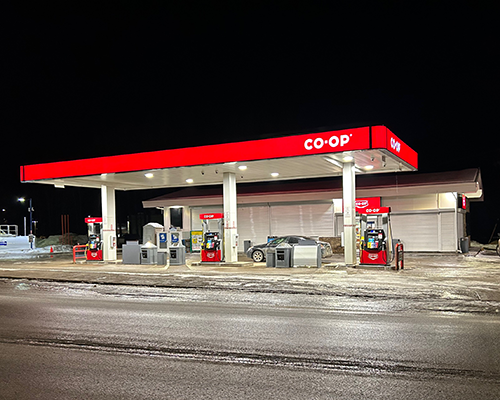
-
2022FCL appoints Heather Ryan as CEOThe FCL Board of Directors announces the appointment of Heather Ryan as CEO, the first woman to serve in this position. Heather joined FCL in 2013 and has been a member of the Senior Leadership Team since 2015.
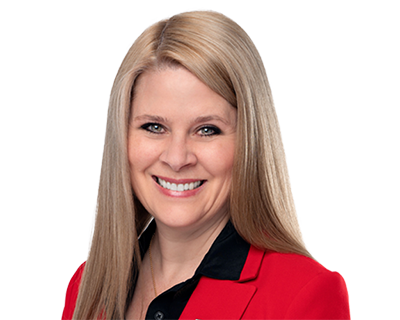
 Web Content Viewer
Web Content Viewer
- ${title}${badge}
